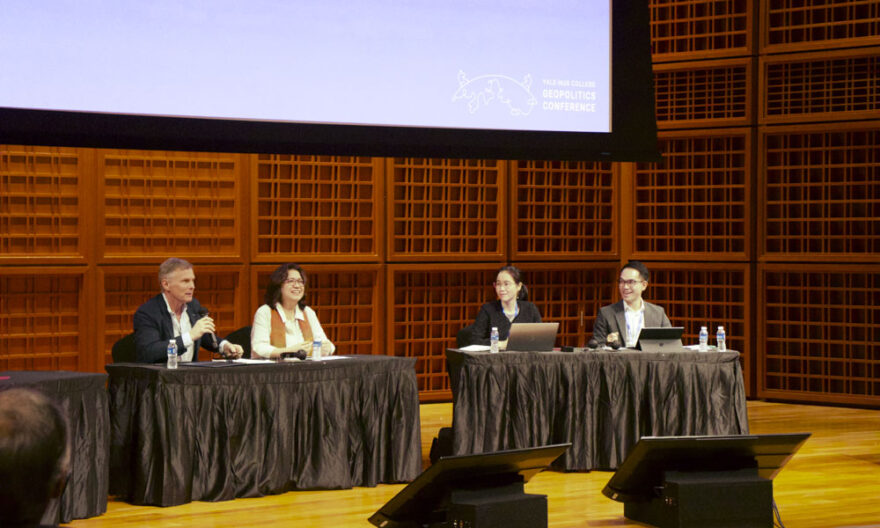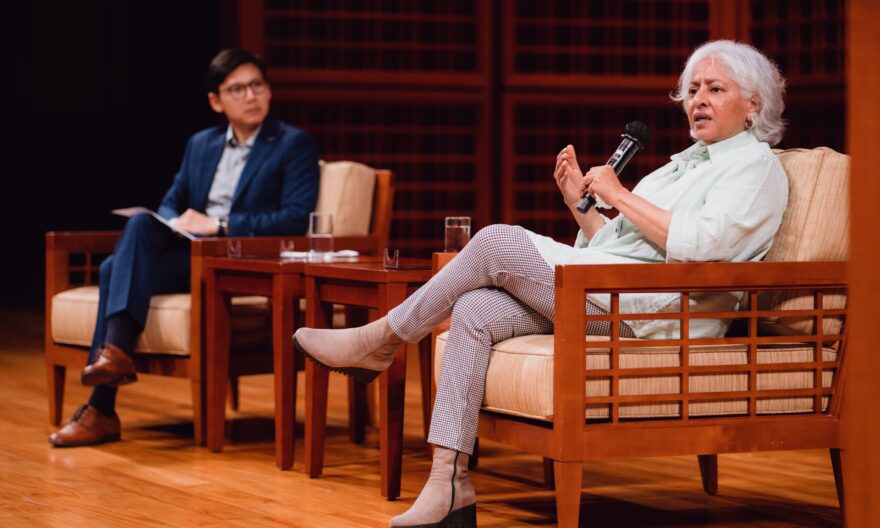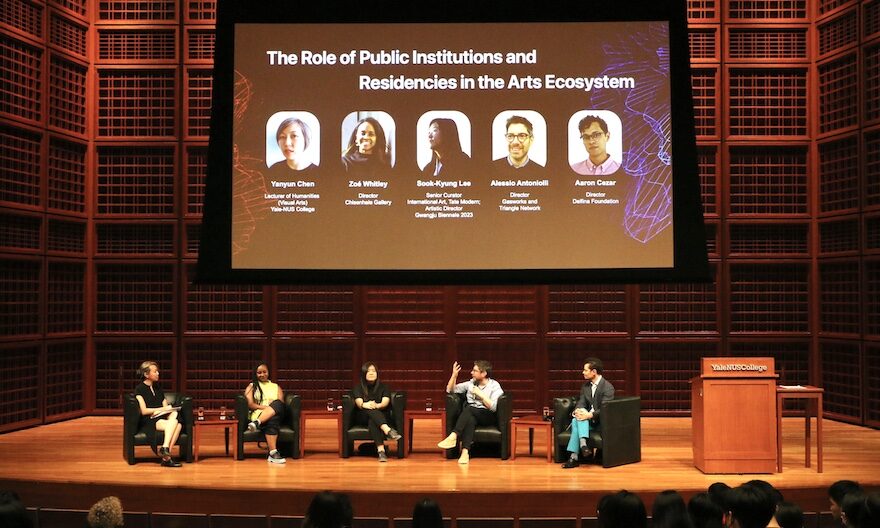Yale-NUS Hosts International Academic Conference on Excavated Manuscripts and Chinese Classical Studies in Collaboration with Fudan University
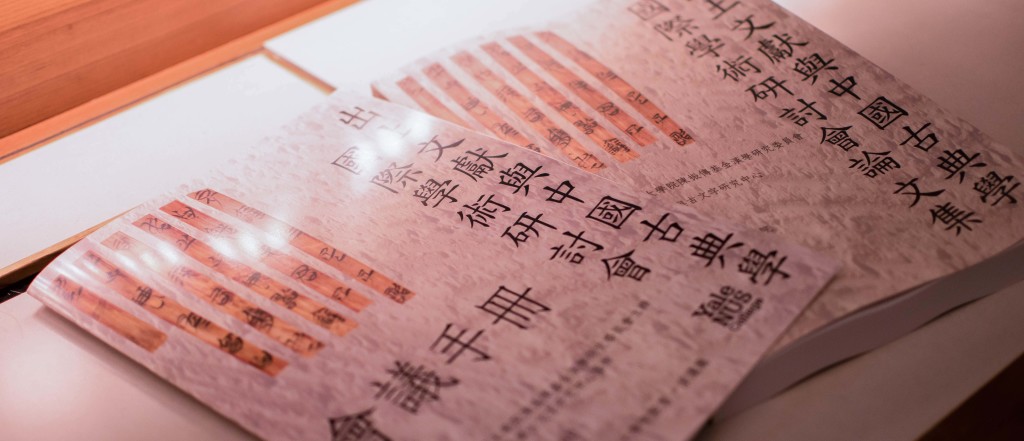
From 7 to 9 April 2016, Yale-NUS College held the inaugural Conference on Excavated Manuscripts in Chinese Classical Studies, a collaborative initiative led by the Chinese Studies Council at Yale-NUS College in partnership with the Center for Research on Chinese Excavated Manuscripts and Paleography of Fudan University (Shanghai). The conference involved presentations from over twenty speakers in nine separate panels.
Tan Chin Tuan Professor of Chinese Studies, Professor Scott Cook led the conference along with Professor Liu Zhao, Director of Fudan University’s Center for Research on Chinese Excavated Manuscripts and Paleography. This academic conference welcomed scholars from around the globe, spanning Hong Kong to the United States of America. The convening of international participants with diverse backgrounds, together with local representatives, provided an impressive and engaging platform for meaningful academic collaboration.
President Pericles Lewis noted in his opening address, “It is our belief at Yale-NUS College that one of the fundamental principles of a liberal arts education is the reading and discussion of particular texts from different cultures.”
He added, “The questions discussed here come from Chinese traditions that are also part of the shared legacy of East Asia. Examination of these manuscripts could be considered an investigation and celebration of difference.”
Professor Liu echoed this, highlighting the importance of studying Chinese Classical Studies: “Classical Chinese Studies embodies the essence of China’s rich cultural history. Venturing into the origin of ancient Chinese manuscripts thereby enables us to uncover the unique thoughts and perspectives of our ancestors.” As Classical Chinese Studies increasingly gain prominence both in and out of China, Professor Liu believes that such conferences will bring about significant progress for Chinese Studies in Singapore and hopes for further collaboration with the College.
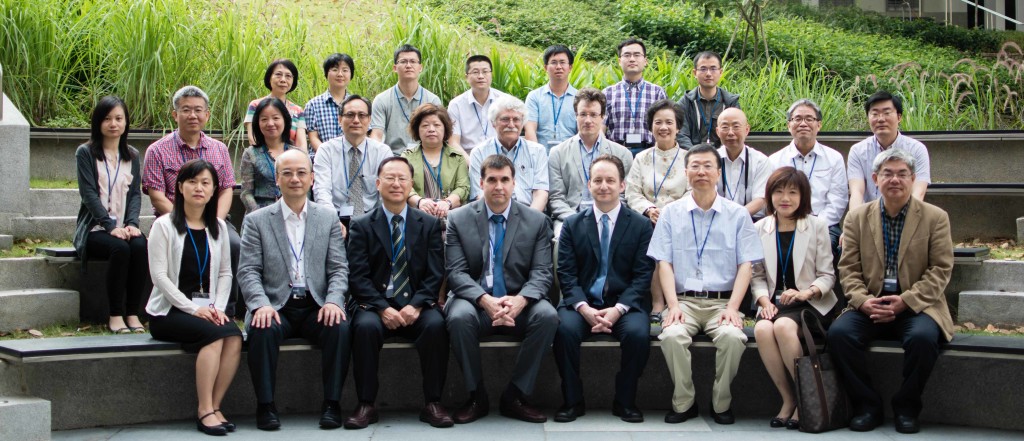
Delegates attending the Inaugural Conference on Excavated Manuscripts and Chinese Classical Studies at Yale-NUS.
The conference covered a diverse range of topics in the fields of linguistics, paleography, literature, philosophy and intellectual history. For instance, Professor Sato Masayuki from the National Taiwan University’s Department of Philosophy proposed that the Guodian manuscript titled The Way of Loyalty and Trust that was excavated in Hubei Province suggests that the concepts of ‘Loyalty and Trust’ were not only principles that officials had to abide by, but also served as a guide to rulers on how to rule their state. In the field of linguistics, Professor William Baxter from the University of Michigan Department of Asian Languages and Cultures addressed the limitations of using medieval consonant clusters to analyse ancient Chinese phonology. Professor Baxter proposed that the research scope needs to be extended to include new insights from modern linguistics, which can provide a more profound understanding to ancient phonology.
For Professor Deng Pei-Ling, who teaches at the University of Hong Kong’s Department of Chinese, the highlight of the conference was the opportunity to adopt an interdisciplinary approach to discuss and gain further insights into topics relating to Chinese Classical Studies.
Similarly, Althea Tan, a student participant and a former recipient of the Chinese Language Scholarship funded by the Tan Chin Tuan Chinese Culture & Civilisation Programme at Yale-NUS, shared, “This conference was an eye-opener for me, particularly since I have had no experience of an academic conference prior to this. As I am currently taking a course on Warring States Intellectual and Political History this semester, the conference allowed me to contextualise my learnings and gain a deeper understanding of the developments and current debates in the field.”
This conference served as another useful platform for students and scholars alike to appreciate the impressive cultural diversity within China via the study and presentation of the evolutionary history of unique Chinese characters.
The conference, fully conducted in Mandarin, was supported by the Tan Chin Tuan Chinese Culture and Civilisation Programme at Yale-NUS. The Tan Chin Tuan Professorship in Chinese Studies and the Tan Chin Tuan Chinese Culture and Civilisation Programme was established to honour a larger-than-life individual, whose legacy of philanthropy is transforming lives even today through the Tan Chin Tuan Foundation. The Programme aims to increase the understanding of China and Chinese culture amongst the students at Yale-NUS College. Under the programme, the Foundation has also supported the Chinese Language Scholarship Programme. Perry Kwan, a co-writer for this article was the Chinese Language Scholar for the Summer of 2015.

